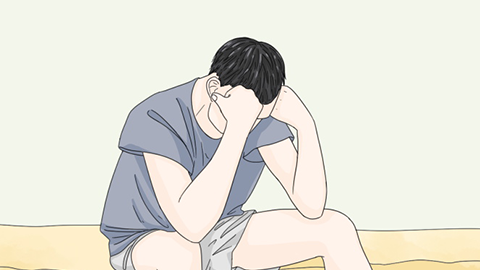How to manage premature ejaculation
Generally, the management of premature ejaculation should target its underlying causes, which commonly include psychological anxiety, glans hypersensitivity, prostatitis, seminal vesiculitis, and hyperthyroidism. It is recommended to seek timely medical consultation to identify the specific cause, followed by improvement through general treatments, medication, and other approaches under a doctor's guidance. A detailed analysis is as follows:

1. Psychological anxiety: Long-term concern about sexual performance and emotional stress can interfere with the ejaculation control center, leading to rapid ejaculation. Daily practices such as deep breathing and meditation can help relieve anxiety. Communication with one's partner about sexual experiences and seeking counseling from a psychologist when necessary can help establish a relaxed sexual atmosphere.
2. Glans hypersensitivity: The glans contains numerous nerve endings, making it prone to ejaculation triggered by slight stimulation, often related to long-term coverage. Under a doctor's guidance, medications such as compound lidocaine cream, tetracaine hydrochloride gel, or diclonine chlorhexidine sulfur ointment may be used to reduce sensitivity. Wearing a condom during sexual intercourse can also help reduce stimulation.
3. Prostatitis: Inflammation caused by bacterial infection or prolonged sitting can irritate the prostate and surrounding nerves, shortening the ejaculation latency period, often accompanied by frequent urination and urgency. Patients should follow medical advice to use medications such as levofloxacin hydrochloride capsules, Qianlieshutong capsules, or tamsulosin hydrochloride sustained-release capsules to control inflammation. Prolonged sitting should be avoided, and urination should be regular.
4. Seminal vesiculitis: Bacterial retrograde infection of the seminal vesicles causes inflammation that affects the ejaculation reflex, often accompanied by painful ejaculation and hematospermia. Patients should follow medical advice to use anti-inflammatory medications such as cefuroxime axetil tablets, azithromycin capsules, or levofloxacin hydrochloride capsules. Sexual activity should be avoided during treatment to reduce stimulation of the seminal vesicles.
5. Hyperthyroidism: Excessive secretion of thyroid hormones may lead to sympathetic nerve hyperexcitability, interfering with ejaculation regulation, often accompanied by palpitations and excessive sweating. Patients should follow medical advice to use medications such as methimazole tablets, propylthiouracil tablets, or metoprolol tartrate tablets to regulate thyroid function. A low-iodine diet should be maintained daily, and emotional fluctuations should be avoided.
Daily lifestyle should include maintaining a regular routine, avoiding late nights and excessive masturbation, engaging in moderate exercise such as jogging and Kegel exercises to improve physical fitness. Diet-wise, spicy and irritating foods should be limited, while adequate intake of zinc- and protein-rich foods is recommended.





